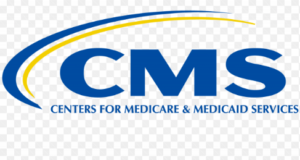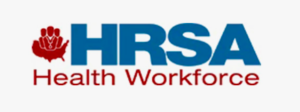- Public Inspection: CMS: Medicare Program: Implementation of Prior Authorization for Select Services for the Wasteful and Inappropriate Services Reduction Model
- CMS: Secretarial Comments on the CBE's (Battelle Memorial Institute) 2024 Activities: Report to Congress and the Secretary of the Department of Health and Human Services
- HHS: Patient Protection and Affordable Care Act: Marketplace Integrity and Affordability
- HRSA Announces Action to Lower Out-of-Pocket Costs for Life-Saving Medications at Health Centers Nationwide
- Public Inspection: HHS: Patient Protection and Affordable Care Act: Marketplace Integrity and Affordability
- Increased Risk of Cyber Threats Against Healthcare and Public Health Sector
- Eight Hospitals Selected for First Cohort of Rural Hospital Stabilization Program
- Announcing the 2030 Census Disclosure Avoidance Research Program
- CMS: Medicare Program; Hospital Inpatient Prospective Payment Systems for Acute Care Hospitals and the Long-Term Care Hospital Prospective Payment System and Policy Changes and Fiscal Year 2026 Rates; Requirements for Quality Programs; and Other Policy Changes; Correction
- CMS: Medicare Program; Hospital Inpatient Prospective Payment Systems for Acute Care Hospitals and the Long-Term Care Hospital Prospective Payment System and Policy Changes and Fiscal Year 2026 Rates; Requirements for Quality Programs; and Other Policy Changes; Correction
- CMS: Medicare and Medicaid Programs; Contract Year 2026 Policy and Technical Changes to the Medicare Advantage Program, Medicare Prescription Drug Benefit Program, Medicare Cost Plan Program, and Programs of All-Inclusive Care for the Elderly; Correction
- CMS: Medicare and Medicaid Programs; Contract Year 2026 Policy and Technical Changes to the Medicare Advantage Program, Medicare Prescription Drug Benefit Program, Medicare Cost Plan Program, and Programs of All-Inclusive Care for the Elderly; Correction
- CMS: Medicare Program; Prospective Payment System and Consolidated Billing for Skilled Nursing Facilities; Updates to the Quality Reporting Program for Federal Fiscal Year 2026
- CMS: Medicare Program; FY 2026 Hospice Wage Index and Payment Rate Update and Hospice Quality Reporting Program Requirements
- Public Inspection: CMS: Medicare Program: Fiscal Year 2026 Hospice Wage Index and Payment Rate Update and Hospice Quality Reporting Program Requirements
Pennsylvania Distributes Funding to Dentists Providing Services to Medicaid Patients
 As part of the FY 2023-24 state budget, the Pennsylvania state legislature allocated $12 million to be used for the purpose of making one-time payments to dentists enrolled in the Medical Assistance (MA) program based on an enrolled dentist’s utilization from calendar year 2022 billing of 31 dental codes as compared to the total claims billed. Per the legislation, this program is only for dentists that submitted bills for the eligible services using Provider Type 27 (Dentist). That means that care provided by FQHC dentists is not eligible for this funding as FQHCs are enrolled as Provider Type 8 and the FQHC is both billing and rendering provider.
As part of the FY 2023-24 state budget, the Pennsylvania state legislature allocated $12 million to be used for the purpose of making one-time payments to dentists enrolled in the Medical Assistance (MA) program based on an enrolled dentist’s utilization from calendar year 2022 billing of 31 dental codes as compared to the total claims billed. Per the legislation, this program is only for dentists that submitted bills for the eligible services using Provider Type 27 (Dentist). That means that care provided by FQHC dentists is not eligible for this funding as FQHCs are enrolled as Provider Type 8 and the FQHC is both billing and rendering provider.
Employers Now Have Employee Health Insurance Coverage Options
Employers offering an Individual Coverage Health Reimbursement Arrangement (ICHRA) can reimburse employees with pretax dollars to cover the cost of individual health insurance premiums and qualified medical expenses. ICHRAs first became available in 2020, preceded by qualified small employer health reimbursement arrangements (HRAs) in 2017. Until then, the Affordable Care Act (ACA) prohibited employers from reimbursing employees for individual market premiums. Employers determine how much they will reimburse employees via an ICHRA health insurance plan. The same terms must apply to all workers within a given class, though reimbursements may be increased for older employees and those with more dependents. Some ICHRAs may be more affordable options because employers set how much they’re willing to spend and because they provide flexibility for employers who don’t or can’t offer healthcare insurance due to the cost. Unfortunately, not all employees can purchase individual coverage through marketplaces or receive premium tax credits. The coverage employers offer must not meet the Affordable Care Act Affordability standards and ensure enough employees participate or it may become cost prohibitive. Depending on the marketplace offerings, employers will have to determine if the risk or change is worth it.
Prime Pennie Contractor Acquired by Accenture Federal Services

Accenture Federal Services has completed its acquisition of Cognosante, a Falls Church, Virginia-based provider of digital transformation and cloud modernization solutions for federal health, defense, intelligence, and civilian agencies. Accenture Federal Services announced its intent to acquire Cognosante on April 15, 2024. Cognosante is the prime contractor under the current enrollment assistance contract for the Pennsylvania Health Insurance Exchange (Pennie). Founded in 2008 by Michele Kang, Cognosante has grown rapidly and is providing technology solutions to federal government clients, including healthcare programs supporting veterans, active-duty military, patients, beneficiaries, providers, and payors. Through CMS’s Center for Consumer Information and Insurance Oversight (CCIIO), Cognosante assisted with an Enrollment Assistance Program to ensure continuity of coverage for individuals and families impacted by the Medicaid Unwinding.
Pennsylvania House Insurance Committee Prepares to Vote on Senate-Passed Telemedicine Bill

The House Insurance Committee unanimously passed a telemedicine bill that passed the state Senate last month. Senate Bill 739 would require that health insurance policies cover medically necessary and otherwise covered healthcare services delivered through telemedicine. The bill was approved by the Senate by a 47-1 vote. The bill does allow telemedicine services to be provided by FQHCs. The bill now goes to the House for a vote. Since the bill was amended in the House Insurance Committee, it would need to go to the Senate for final approval.
Center of Excellence for Telehealth and Aging: Creating Access to Care in Rural America
 A recording of a May 2024 webinar describing how CAMC Greenbrier Valley Medical Center utilized telemedicine hubs to ensure access to care in rural West Virginia communities. The presentation discusses lessons learned, development of the program, and future plans. There’s also a panel discussion with telehealth, geriatric care, and rural health experts on improving healthcare delivery in rural areas. The Center for Excellence in Telehealth and Aging is a collaboration that includes the HRSA-supported Mid-Atlantic Telehealth Resource Center.
A recording of a May 2024 webinar describing how CAMC Greenbrier Valley Medical Center utilized telemedicine hubs to ensure access to care in rural West Virginia communities. The presentation discusses lessons learned, development of the program, and future plans. There’s also a panel discussion with telehealth, geriatric care, and rural health experts on improving healthcare delivery in rural areas. The Center for Excellence in Telehealth and Aging is a collaboration that includes the HRSA-supported Mid-Atlantic Telehealth Resource Center.
With New EMS Quality Measures, Florida Aims to Have a National Impact on Rural Care
 A feature article in The Rural Monitor features the Feasible, Actionable, Impactful and Relevant (FAIR) EMS Measurement Project, an initiative by the Florida Department of Health which developed rural-relevant EMS quality measures for use in the state and nationally.
A feature article in The Rural Monitor features the Feasible, Actionable, Impactful and Relevant (FAIR) EMS Measurement Project, an initiative by the Florida Department of Health which developed rural-relevant EMS quality measures for use in the state and nationally.
Preparing Behavioral Health Clinicians for Success and Retention in Rural Safety Net Practices

A study published by the Journal of Rural Health assesses how training in rural communities relates to confidence in skills important in their work settings, successes in jobs and communities, and anticipated retention. Here, a summary of the study is provided by 3RNET, a national nonprofit that helps rural practices expand their reach for posting job vacancies.
CMS is Extending Medicaid Unwinding Data Reporting
 The Centers for Medicare & Medicaid Services (CMS) issued this letter to inform Medicaid agencies that CMS is extending current state reporting requirements for certain metrics contained in the Unwinding Data Report. Monthly state reporting about renewal actions occurring on or after July 1, 2024, and fair hearing requests that have been pending for more than 90 days, will continue on an ongoing basis. CMS will continue reporting data publicly to maintain transparency into Medicaid and CHIP renewal outcomes at the national and state levels. Medicaid is an important source of insurance coverage in rural areas. The unwinding of the continuous Medicaid coverage provision has resulted in over 22 million enrollees being disenrolled as of May 23, 2024 and over 49 million have had their coverage renewed.
The Centers for Medicare & Medicaid Services (CMS) issued this letter to inform Medicaid agencies that CMS is extending current state reporting requirements for certain metrics contained in the Unwinding Data Report. Monthly state reporting about renewal actions occurring on or after July 1, 2024, and fair hearing requests that have been pending for more than 90 days, will continue on an ongoing basis. CMS will continue reporting data publicly to maintain transparency into Medicaid and CHIP renewal outcomes at the national and state levels. Medicaid is an important source of insurance coverage in rural areas. The unwinding of the continuous Medicaid coverage provision has resulted in over 22 million enrollees being disenrolled as of May 23, 2024 and over 49 million have had their coverage renewed.
Rural/Urban Differences in Housing Quality and Adequacy Released: Findings From the American Housing Survey, 2019

Among the key findings in this policy brief from the University of Minnesota Rural Health Research Center:
- Rural housing units had higher rates of several specific housing quality issues, including heating problems, utility interruptions, missing roofing or external building materials, and broken windows.
- Urban housing units had higher rates of flush toilet breakdowns, electric wiring problems, and indoor water leakage, compared to rural units.
- The prevalence of signs of mice or rats inside homes in rural areas was approximately double that observed in urban clusters and urbanized areas.
New Occupations Added to Guide for Licensure Portability
 The Multi-Discipline Licensure Resource Project is an effort supported by HRSA to improve licensure portability for health care professions working between states and for people who are geographically isolated. Previously, the site provided guidance for four disciplines: Psychology, Social Work, Physical Therapy, Occupational Therapy. New disciplines have been added: Counseling, Dentistry, Dietitians, Emergency Medical Services, Physician Assistants, Nursing, Advanced Practice Nursing, and School Psychologists.
The Multi-Discipline Licensure Resource Project is an effort supported by HRSA to improve licensure portability for health care professions working between states and for people who are geographically isolated. Previously, the site provided guidance for four disciplines: Psychology, Social Work, Physical Therapy, Occupational Therapy. New disciplines have been added: Counseling, Dentistry, Dietitians, Emergency Medical Services, Physician Assistants, Nursing, Advanced Practice Nursing, and School Psychologists.
